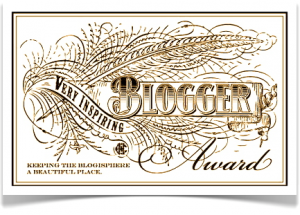by
Tracy Shawn, MA, author of “The Grace of Crows”
of “The Grace of Crows”
The other day, I found myself lying under my bed with rag in hand wiping away the remains of dreaded dust bunnies—and this was after I pushed the long-handle of the vacuum several times through.
Did this really need to get done? No, it did not.
But did this fussy kind of cleaning make me feel better? And the answer to that is that it certainly did.
I knew at the time that it was giving me a sense of control—and, yes, even a sense of accomplishment—during this highly stressful period in which I’m trying to help a loved one navigate perplexing medical issues. (I also appreciated it the next day when I was following an online yoga class and found myself in the down-dog pose, admiring how clean my whole floor was—underneath bed and all.)
Here’s the thing, though: If I hadn’t been aware of why I decided to go on such a fastidious cleaning expedition, then it could have easily turned into a kind of OCD journey where I spent hours hunting down ALL the dust bunnies in the house. And that would not have made me feel better. I know this because it’s happened before.
When I didn’t stop to think about why I had spun into one of my every-few-weeks cleaning frenzies, I continued to dust, polish, and scrub until the sun set, leaving me more exhausted than refreshed.
Yet now that I’m aware of the psychological reasons behind my sudden urges to clean house in the way the cartoon Tasmanian Devil whirls through his day seeking to feed his voracious appetite, I know when to call it quits.
So, if you’re like me and enjoy a sense of calm and order after finishing a task that others may deem as a tad above overkill, then make sure to acknowledge your urge to do so.
If you can admit the underlying reasons why you are compelled to make the kitchen’s countertops and cabinets gleam, then you may very well know when to stop before you exhaust yourself by deciding to also get down on your hands and knees to scrub the baseboards as well (you can always save that one for another day).
And when you’re done, make sure to take the time to notice the visual mark you’ve been able to make in your immediate surroundings.
More importantly, though, allow these small victories to energize you in being able to face the larger, more complicated areas of your life. For isn’t it nice to use your cleaning spurts as a kind of therapy that not only creates more order in your physical world—but actually helps you deal with the internal one as well?
Tracy Shawn, M.A. lives and writes on the Central Coast of California. Her writing has appeared in literary journals as well as print and online newspapers and magazines. Shawn’s award-winning debut novel The Grace of Crows is about a woman’s journey from anxiety.
